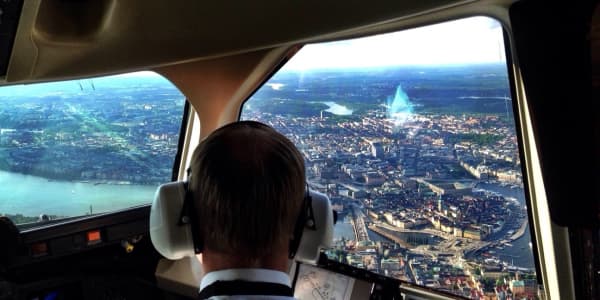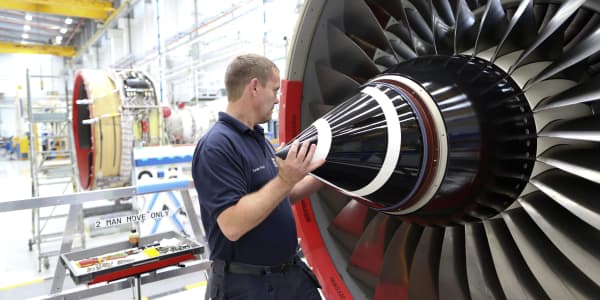The world wants to fly, or at least a growing number of people around the world do and that's lifting forecasts for new planes, especially narrow-body models, to an all-time high.
"The market is especially hungry for single-aisle airplanes as more people start traveling by air," said Randy Tinseth, vice president of Marketing at Boeing Commercial Airplanes.
Boeing's new forecast predicts the world will need 41,039 new airplanes over the next 20 years. That is 3.6 percent increase over the company's forecast from last year. The value of the orders is calculated at $6.1 trillion.
What's driving the greater demand?
A huge factor the rise in middle-income travelers in developing markets like China and India.
"There are more people, especially in Asia, who now have the means and the desire to fly," said John Plueger, president and CEO of Air Lease Corporation, which leases hundreds of airplanes to airlines around the world. "That growing middle class means airlines will need more planes."
China remains the largest new market
Single-aisle planes like Boeing's 737 and the Airbus A320 are in demand because they have the efficiency and versatility that allow airlines to fly the planes profitably on a growing number of routes. By comparison, larger, twin-aisle planes require more passengers to keep them full and the number of routes that can sustain that demand is more limited.
Not surprisingly, China remains the largest market for new airplanes. Over the next twenty years, Boeing expects Asia, including the China market to need more than 16,000 new airplanes, or 39 percent to the global demand.
Boeing said the single-aisle segment will be, fueled by low-cost carriers and emerging markets. It estimates 29,530 new airplanes will be needed in this segment, an increase of almost 5 percent over last year.
In the study, Boeing claimed the demand for very large airplanes going forward will be in the cargo market and that passenger-focused airlines will shift to smaller size wide-body planes.
This claim drew scorn from Airbus COO for Aviation Customers at Airbus, John Leahy, who said this was more a reflection of the poor revenue Boeing was generating from its largest jetliner.
"The 747-8 isn't selling, so they would say that. Traffic is doubling every 15 years. Their explanation is that we have to have more flights.
"Are we going to accommodate twice the traffic in Dubai, London or Paris within 15 years with more flights? You just can't do it," Leahy said at an Airbus press event.
Orders continue for big two
The race for new orders between the big two jet makers continued Tuesday.
Airbus announced a deal with Latin American low cost carrier Viva Air for 50 more A320 aircraft. The leasing company CDB Aviation also signed up for a further 45 of the A320 family.
Meanwhile Boeing built on its busy first day announcing another 126 orders for variants of its 737 MAX series. Buyers included Ryanair and Blue Air.
The US firm also announced a deal to sell four 787-8 Dreamliners to Azerbaijan Airlines.






